In the 1800s, several chess matches were conducted by telegraph. Modern technology ought to make long-distance matches easier than ever, but in fact competitive international chess is almost always played in person these days. That is partly because it is impossible to police computer-assisted cheating if the players play at home. But equally, the practical barriers to travel are (usually) much fewer in the modern age.
But prominent chess players (especially in the days of the USSR) have often had to negotiate political obstacles. Shohreh Bayat, from Iran, was in Shanghai in January for the first leg of the Women’s World Championship, where she was the chief arbiter — one of very few women in the world qualified to perform that role. When a photograph circulated on Iranian media purportedly showing her not wearing a headscarf, she decided that she could not return home, and came to England. In a compelling interview with Emily Maitlis on Newsnight, Shohreh explained the punishments that might await her in Iran (including lashing, prison, and revocation of her passport), and pointed out that she had been wearing a loose headscarf, but it had been obscured by the angle of the photograph. Her husband and home are in Iran, but she is unsure if she will ever return.
Shohreh was guest of honour at this year’s 138th Varsity match between Oxford and Cambridge, and received a stirring tribute from David Sedgwick, England’s most distinguished arbiter. I have played and visited many times, and nowhere is more hospitable than the Royal Automobile Club in London, whose Chess Circle hosts the event in great style each year.
This year, Cambridge were strong favourites. After four hours of play, Ryan-Rhys Griffiths opened the scoring with a win for them. He won the brilliancy prize with the game below, patiently assuming control of the whole board. Harry Grieve and Gustavo Leon Cazares notched up two more good wins for Cambridge, and Oxford were unable to strike back. The final score of 5.5-2.5 for Cambridge puts them ahead by 60 wins to 56 (with 22 matches drawn) in the historic series.
Ryan-Rhys Griffiths–Daniel Abbas
Varsity Match, March 2020
1 d4 Nf6 2 c4 e6 3 Nc3 Bb4 4 e3 O-O 5 Nge2 d5 6 a3 Bd6 7 Ng3 c5 8 dxc5 Bxc5 9 b4 Be7 10 Bb2 a5 11 b5 Re8 12 Rc1 dxc4 13 Bxc4 Nbd7 14 O-O Nb6 15 Bd3 Nbd5 15…e5 was a possible improvement, to liberate the bishop on c8. 16 Nxd5 Nxd5 17 Qc2 h6 (see diagram) 18 Nh5! An incisive move, developing the initiative. 18…Bf8 18…Nf6 is the move Black would like to play, but then 19 Rfd1 eyes up the queen and threatens 20 Bh7+. 19 e4 Qg5 20 Qe2 Nf4 21 Nxf4 Qxf4 22 e5! Entombing the c8 bishop for the rest of the game. 22…Rd8 23 Rc7 Rb8 24 Rfc1 Bd7 25 R1c4 Qg5 26 h4 Qe7 27 Rd4 Qe8 28 h5 Turning the screws. White’s positional domination is overwhelming. 28…Rbc8 29 Rxb7 Bc5 30 Rg4 Kf8 31 Qe4 Rb8 32 Qh7! 32…Rxb7 33 Qxg7+ Ke7 34 Qf6+ Kf8 35 Bh7! and mate follows on g8 Black resigns/>
Got something to add? Join the discussion and comment below.
Get 10 issues for just $10
Subscribe to The Spectator Australia today for the next 10 magazine issues, plus full online access, for just $10.
You might disagree with half of it, but you’ll enjoy reading all of it. Try your first month for free, then just $2 a week for the remainder of your first year.

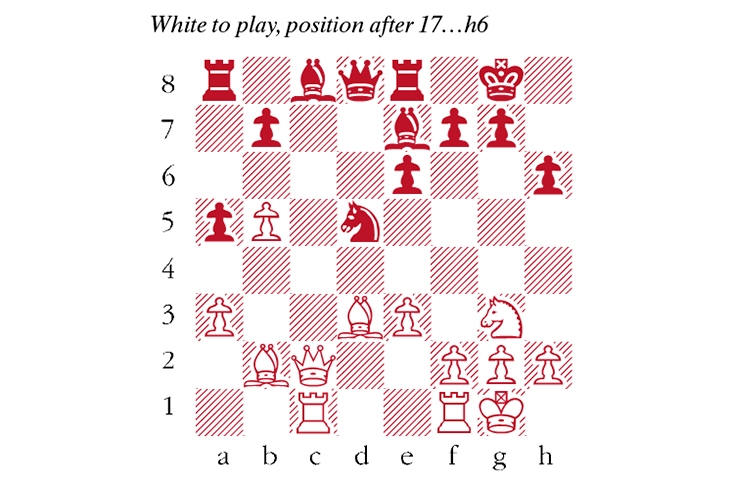
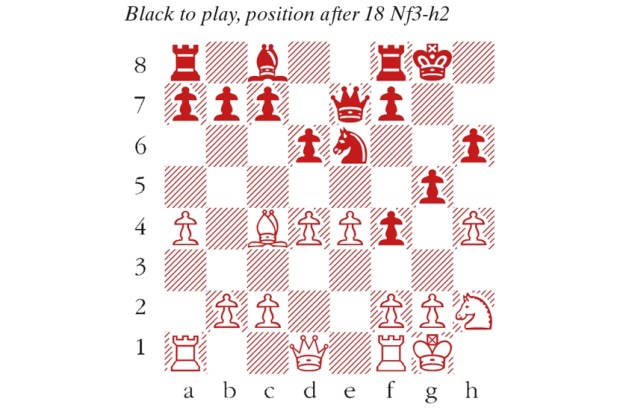

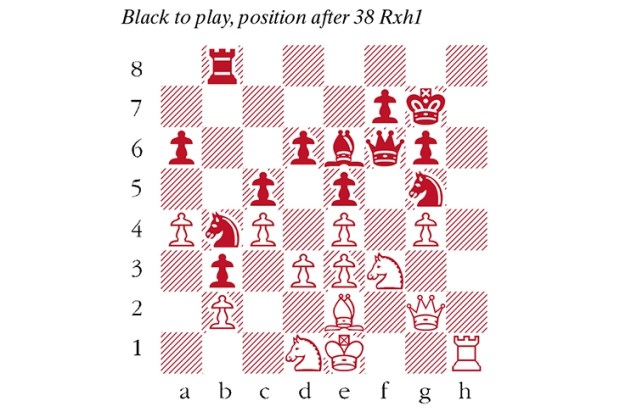
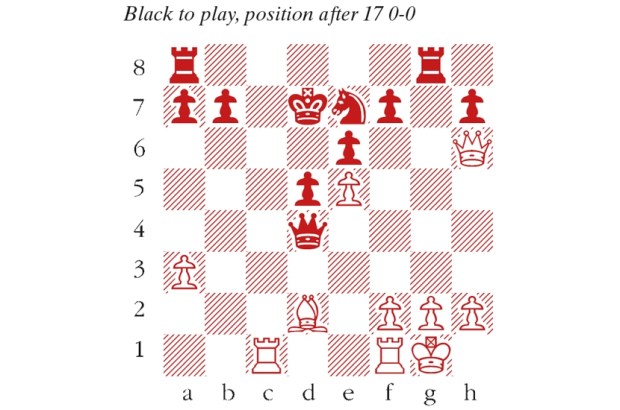
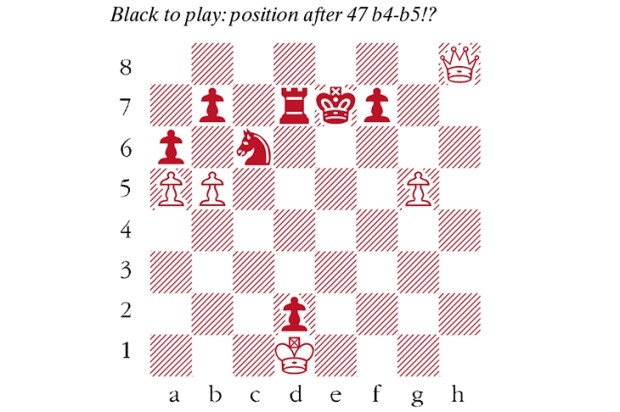
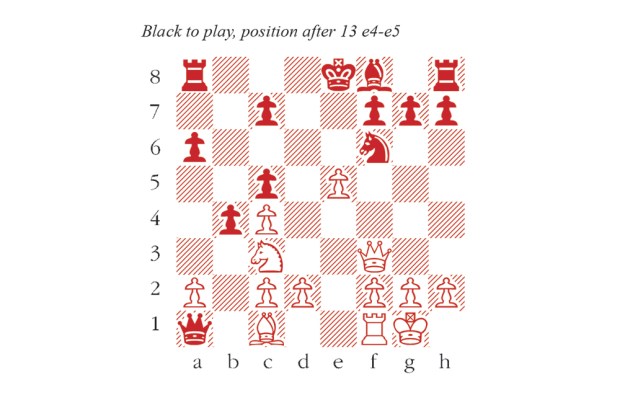






Comments
Don't miss out
Join the conversation with other Spectator Australia readers. Subscribe to leave a comment.
SUBSCRIBEAlready a subscriber? Log in